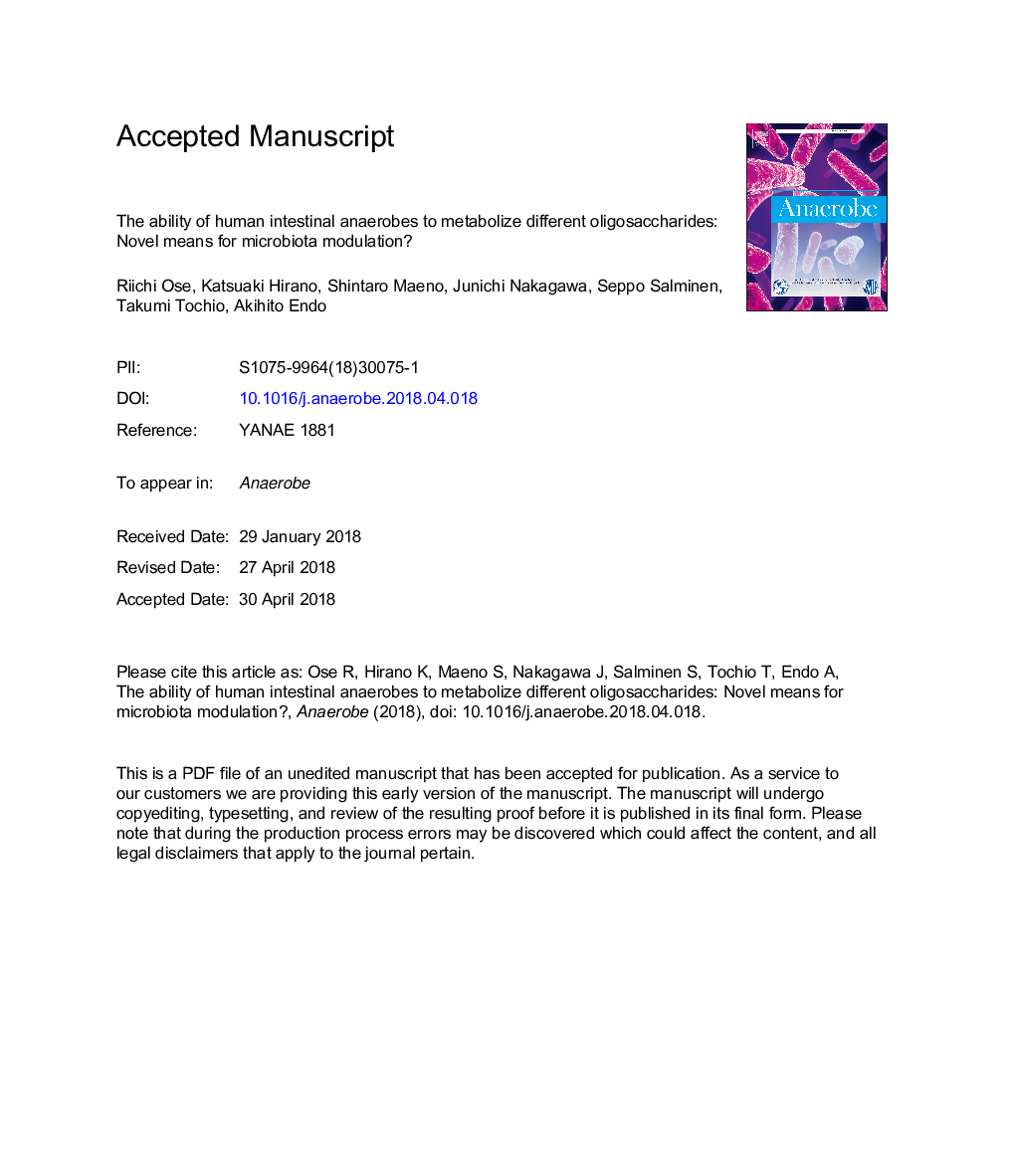| کد مقاله | کد نشریه | سال انتشار | مقاله انگلیسی | نسخه تمام متن |
|---|---|---|---|---|
| 8744563 | 1592813 | 2018 | 46 صفحه PDF | دانلود رایگان |
عنوان انگلیسی مقاله ISI
The ability of human intestinal anaerobes to metabolize different oligosaccharides: Novel means for microbiota modulation?
دانلود مقاله + سفارش ترجمه
دانلود مقاله ISI انگلیسی
رایگان برای ایرانیان
کلمات کلیدی
FOSHPAEC-PADSCFAGOSXylooligosaccharideXOSshort-chain fatty acid - اسید چرب کوتاه مدتShort chain fatty acids - اسیدهای چرب پایه کوتاهOligosaccharide - اولیگوساکاردdegree of polymerization - درجه پلیمریزاسیونfructooligosaccharide - فروکتولیگوساکاریدGut microbes - میکروب های رودهPrebiotics - پری بیوتیک ها HPLC - کروماتوگرافی مایعی کاراhigh-performance liquid chromatography - کروماتوگرافی مایعی کاراGalactooligosaccharide - گالاکتوالگوساکارد
موضوعات مرتبط
علوم زیستی و بیوفناوری
ایمنی شناسی و میکروب شناسی
میکروب شناسی
پیش نمایش صفحه اول مقاله

چکیده انگلیسی
Prebiotic oligosaccharides are known to have significant impacts on gut microbiota and are thus widely used to program healthy microbiota composition and activity from infants to the elderly. Bifidobacteria and lactobacilli are among the major target microorganisms of oligosaccharides, but the metabolic properties of oligosaccharides in other predominant gut microbes have not been well characterized. In the present study, we demonstrated the metabolic properties of six oligosaccharides in 31 key gut anaerobes. Bifidobacteria readily metabolized fructooligosaccharide (FOSs) with degree of polymerization (DP) 3, i.e. 1-kestose, but several strains used did not actively metabolize FOSs with DP4 and DP5, i.e. nystose and fructosylnystose. Akkermansia muciniphila, a potential new probiotic against obesity, did not show significant growth with any of the oligosaccharides tested. The butyrate producer Anaerostipes caccae grew well on 1-kestose but poorly on FOS mixtures, whereas it contained 1-kestose at 30%. Bacteroides-Parabacteroides group species were separated into two groups based on oligosaccharide metabolic properties. One group metabolized well most of the oligosaccharides tested, but the others metabolized only 1 or 2 selected oligosaccharides. Oligosaccharide profiles after culturing revealed that Bifidobacterium spp. preferentially metabolized shorter oligosaccharides (DP3) in the mixtures, whereas Bacteroides-Parabacteroides spp. did not show oligosaccharide selectivity for metabolism or rather preferred longer oligosaccharides (>DP4). The fermentation profiles indicated specific links between the microbial end-products and specific gut microbes. Available carbohydrates had a significant impact on the accumulation of amino acid-derived bacterial metabolites (i.e. phenol, p-cresol, indole and skatole) and short chain fatty acids. The results assist in predicting the impact of oligosaccharides in human intervention and gut microbiota modulation.
ناشر
Database: Elsevier - ScienceDirect (ساینس دایرکت)
Journal: Anaerobe - Volume 51, June 2018, Pages 110-119
Journal: Anaerobe - Volume 51, June 2018, Pages 110-119
نویسندگان
Riichi Ose, Katsuaki Hirano, Shintaro Maeno, Junichi Nakagawa, Seppo Salminen, Takumi Tochio, Akihito Endo,